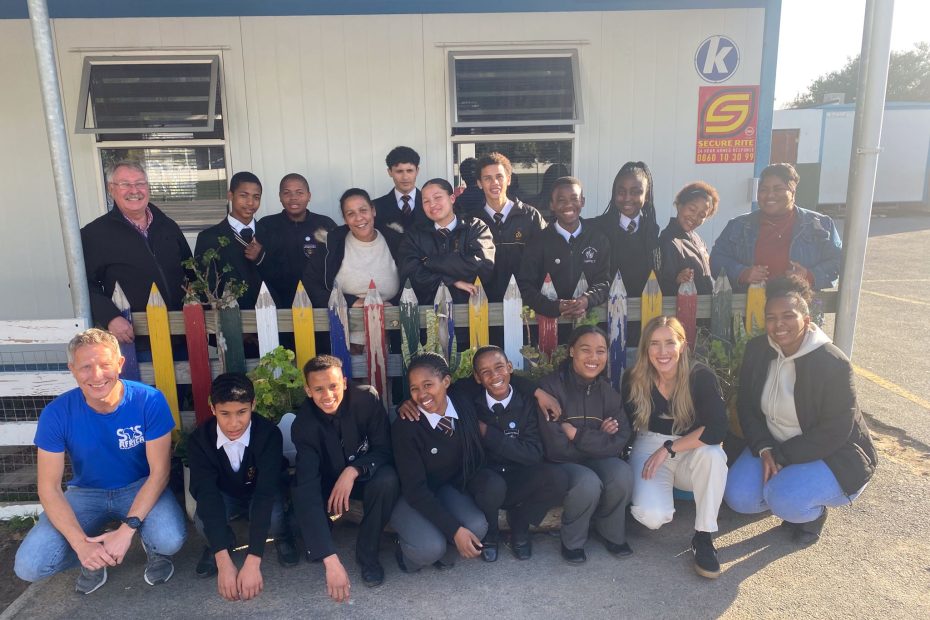Earlier this year, a team of researchers from SPECIFIC travelled to South Africa to build collaborations and inspire students through schools outreach activities.
First of all, Prof Matthew Davies tells us about his visit to the charity SOS Africa…
SOS Africa is a charity that provides disadvantaged children with personal education programmes tailored to their needs. This was my first ever visit to SOS Africa’s home on the Western Cape, but I have worked with the charity since 2010 and I am the current UK Chair of the board of trustees.
Our trip follows on from a large-scale outreach event over a decade ago. In 2013, a team of scientists from Swansea and Bangor and I worked with South African university UKZN to increase the popularity and understanding of chemistry at schools in Mafikeng and Durban.
This year’s visit we built on established connections, met staff from SOS Africa in person for the first time, and carried out further schools outreach. I saw the SOS Education Centre that is currently being built, as well as all the SOS supported schools in the area. As part of the visit, I helped Laura Holt from the World Health Organization Collaborating Centre deliver workshops with the schoolchildren on Global Citizenship. It was wonderful to meet and interact with the SOS children after following their educational journey over the past years.
Before we left, we discussed some potential Swansea University undergraduate trips to help develop the Education Centre. The building has a significant need for energy technologies given the severe load-shedding occurring in South Africa and it would be a fantastic opportunity for our students from the faculty of Science and Engineering in Swansea to take on an international engineering project.
Dr Matt Crowcombe, CEO of SOS Africa, said:
“[We] welcomed special visitors, SOS Africa UK Chair of Trustees Professor Matthew Davies and Laura Holt who works for World Health Organization Collaborating Centre, Public Health Wales…
Whilst Matthew spent time visiting our projects and meeting many of the SOS Africa staff and kids for the very first time, Laura facilitated engaging workshops which explored themes relating to Global Citizenship. As part of these discussions, our older students were asked to consider the challenges faced by their societies and how possible solutions could be found at an individual, community and government level. Both Matthew and Laura were seriously impressed with their responses!
A big thank you to Matthew and Laura for the ongoing support they provide SOS Africa both in terms of fundraising and governance and we look forward to welcoming them back next year!”
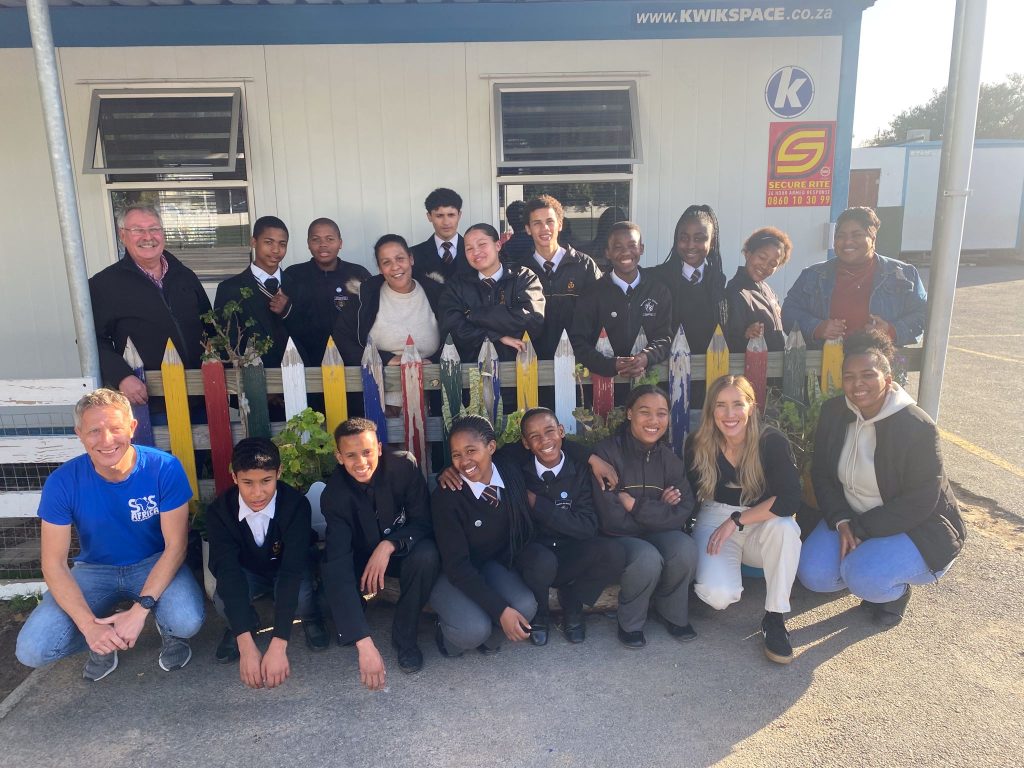
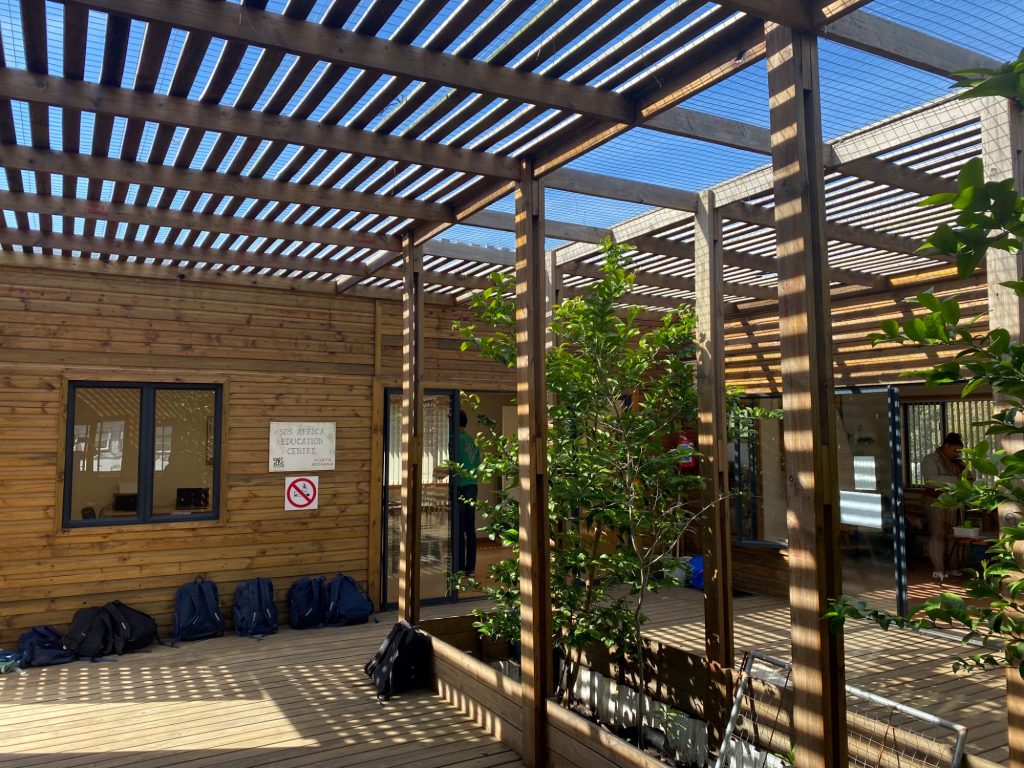
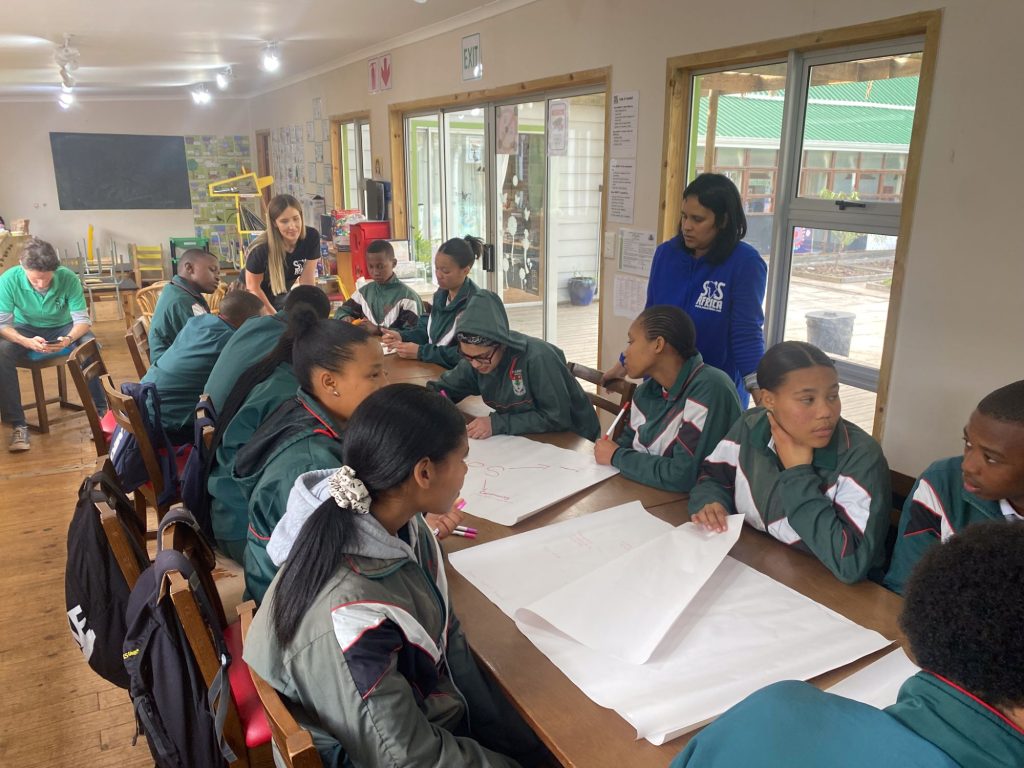
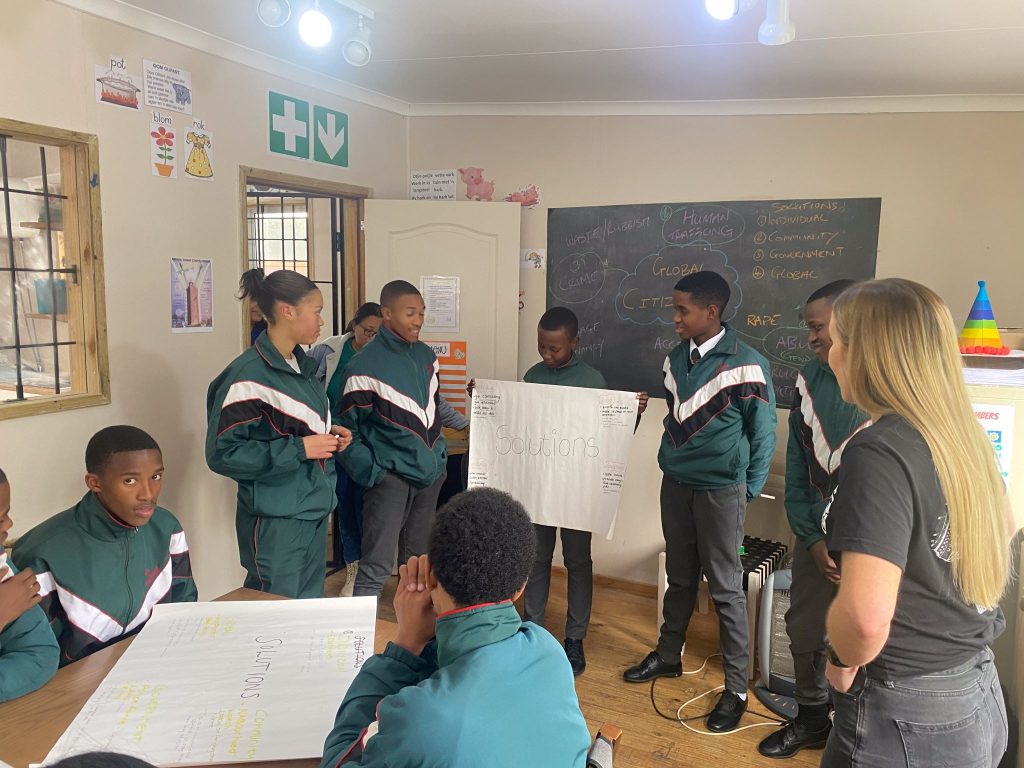
Next up, Niamh Fagan tells us what they got up to in Durban…
On the evening of the 31st August 2023, the team arrived in Durban, South Africa weary and in need of rest. Come the next morning, refreshed and keen to get started, we headed to the University of KwaZulu-Natal’s (UKZN) Westville Campus to meet Dr Andrew Swansea who took us on a tour of the Smart Grid Centre. He showed us the progress of the Swansea University-UKZN Solar Energy Testing Facility as well as some impressive equipment and capability used to test samples and how they can interact with South Africa’s national grid.
The team gave 4 presentations to a packed and enthused audience:
- Professor Matthew Davies gave a wonderful introductory talk introducing the team, celebrating the longstanding collaboration between UKZN and SU, and introducing topics of circular economy and renewable energy technologies. Matthew then discussed the exciting plans for the emerging UNESCO Chair in Swansea University that looks to develop truly sustainable solar energy technologies with, and for, the Global South.
- Rodrigo gave a talk titled “Overview on Perovskite Solar Cells” highlighting the potential for sustainable technology within South Africa and captivating the audience by the prospect of harnessing the abundant sunlight available in the region for renewable energy.
- Rhys introduced the audience to “Circular Economy 101” and defined what constitutes a circular economy. He emphasised its significance in today’s world as well as the need for a shift from a linear to a circular approach in resource management and how this could look to consumers.
- James engaged the audience for an entire hour deep diving into the fascinating analysis available using X-Ray Photoelectron Spectroscopy. He explained how the machine gathers data from samples, the way this data can be used to give new insights to samples and what samples are the most suitable for XPS analysis. James also highlighted some of the impressive work that has already been achieved through XPS at Swansea University.
Schools Outreach
One of the most memorable days of the trip was making dye sensitized solar cells using tea with Wiggins and Chesterville Secondary schools in Durban. Working with 30 students aged 14-17, I communicated the excitement of renewable energy and convinced a few of the students that science is actually cool. Students were keen to participate with teams of 3 each making 2 cells using different flavours of tea and comparing the performance of both flavours as well as competing in the hope of making the most powerful cell. The students lit up with enthusiasm, and the session led several students to start discussing the specific engineering challenges South Africa faces in it’s pursuit of renewable energy, leading the team to believe that the future of South Africa is in very capable hands indeed.
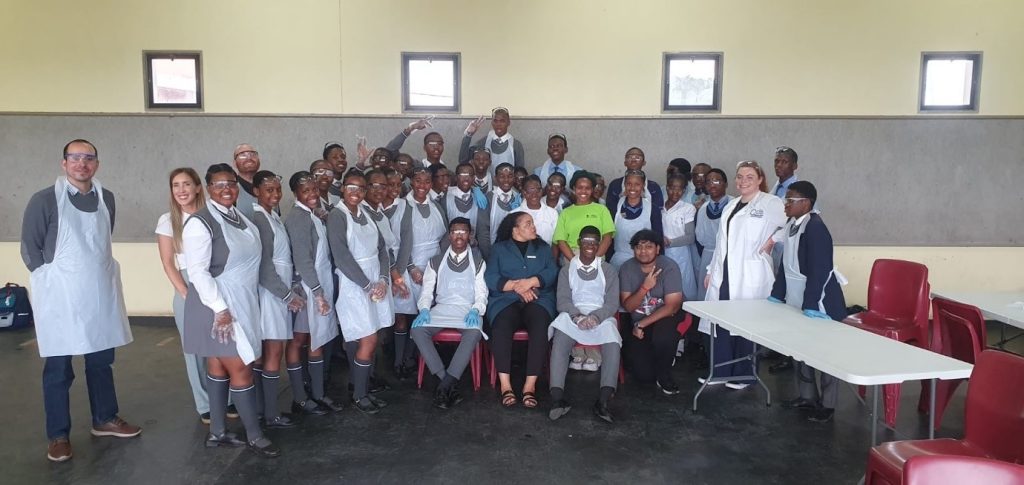
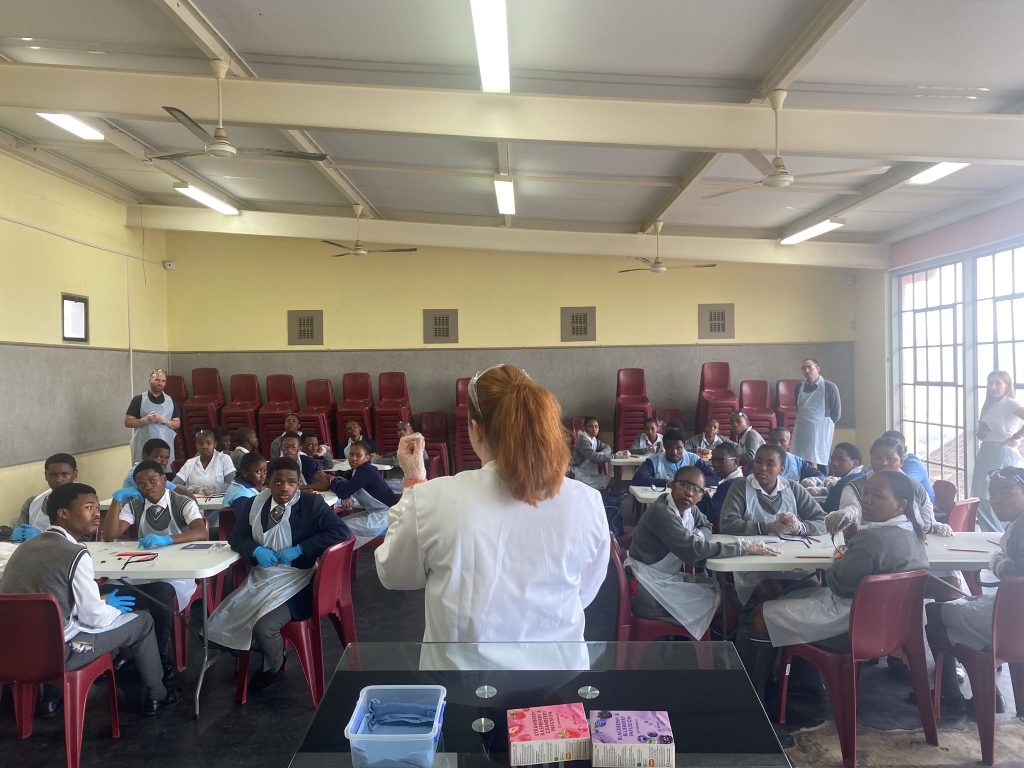
The trip was funded by the Taith programme through Swansea University with support from the Royal Society of Chemistry Energy Sector. Taith is an international learning exchange programme established to create life-changing opportunities for people in Wales to learn, study and volunteer all over the world. We are very grateful to both Taith and the RSC in supporting this international endeavour.
